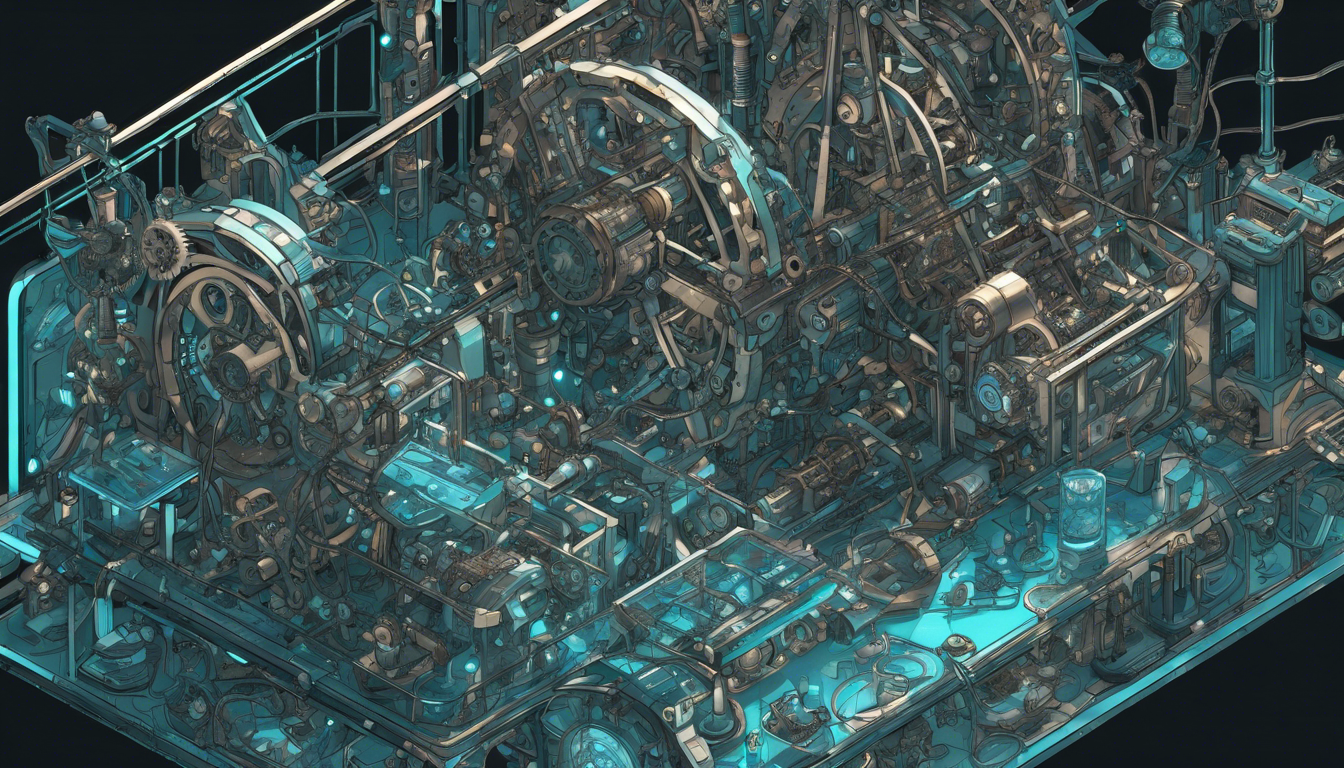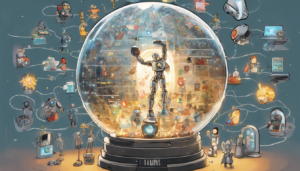This week, the world of technology and artificial intelligence is abuzz with groundbreaking developments. From global cybersecurity guidelines to revolutionary AI collaborations and game-changing innovations in language models, the industry is witnessing a surge of advancements that promise to reshape the future.
UK Releases Global Guidelines for Securing AI Against Cyberattacks
The UK has released the first global guidelines for securing AI systems against cyberattacks, aiming to ensure safe and secure development of AI technology. Endorsed by 18 countries, including all G7 members, the guidelines provide recommendations for incorporating cybersecurity at every stage of AI use. The launch event in London saw participation from industry, government, and international partners, emphasizing the importance of proactive security in AI development. The guidelines, available on the NCSC website, are positioned to elevate the UK’s role as an international standard-bearer for the safe use of AI.
AWS and NVIDIA Expand Collaboration to Advance Generative AI
Amazon Web Services (AWS) and NVIDIA have expanded their collaboration to advance generative AI, aiming to provide customers with cutting-edge infrastructure, software, and services for AI innovations. The partnership integrates NVIDIA’s multi-node systems with next-generation GPUs, CPUs, and AI software, along with AWS technologies such as Nitro System and Elastic Fabric Adapter. Key highlights include the introduction of NVIDIA GH200 Grace Hopper Superchips on AWS, hosting NVIDIA DGX Cloud on AWS, and collaboration on Project Ceiba to develop a GPU-powered AI supercomputer. This joint commitment signifies a significant step in advancing generative AI and providing access to state-of-the-art technologies for customers.
IBM and Meta Launch AI Alliance with Over 50 Tech Members for Responsible Innovation
IBM and Meta have launched the AI Alliance with over 50 tech members to advance ‘open, safe, responsible’ AI. The alliance aims to support open innovation and open science in AI, fostering an open community to accelerate responsible innovation. The initiative will focus on developing benchmarks, advancing open foundation models, and supporting global AI skills building. This announcement comes amidst discussions about the need for a more nuanced and richer dialogue around AI.
HPE Unveils AI-Native Architecture Vision and Expanded Nvidia Partnership
Hewlett Packard Enterprise (HPE) has unveiled a new vision for an AI-native architecture, aiming to enhance AI solutions through an expanded Nvidia partnership and an upgraded Machine Learning Development Environment (MLDE). The updates include extending MLDE as a managed service on AWS and Google Cloud, boosting cloud efforts for AI, and improving HPE’s own cloud with AI-optimized instances. HPE’s goal is to support a full-stack AI-native architecture optimized from hardware to software, catering to the demands of modern enterprise AI workloads. The company also aims to enable enterprises to run AI workloads as part of their business operations, with a focus on generative AI workflows. Additionally, HPE is enhancing its data storage solutions to support the speed and scale required for AI, and expanding its partnership with Nvidia to tackle a broader set of AI workloads, including training.
Voltron Data Launches Theseus Distributed Query Engine for AI Data Acceleration
Voltron Data has unveiled Theseus, a distributed query engine designed to accelerate large-scale data pipelines and queries for AI workloads. Leveraging GPUs and other hardware accelerators, Theseus aims to optimize data processing and promote open interoperability. The engine is built for massive volumes of data, targeting companies with petabyte-scale data processing needs. Theseus also aims to accelerate ETL and feature engineering to feed downstream AI and analytics systems faster. Theseus embraces open standards like Apache Arrow, Apache Parquet, and Ibis for interoperability, and is being brought to market through a partnership with Hewlett Packard Enterprise.
Absci and AstraZeneca Partner to Utilize AI Technology for Cancer Treatment Discovery
Absci and AstraZeneca have joined forces in a partnership to utilize AI technology for the discovery of potential cancer treatments. This collaboration aims to expedite the process of finding a game-changing therapy for cancer by integrating Absci’s Integrated Drug Creation platform with AstraZeneca’s expertise in oncology. The agreement includes an upfront commitment, substantial R&D funding, milestone payments, and royalties on future product sales. The collaboration signifies a significant step forward in utilizing AI to revolutionize the field of drug discovery.
Mastercard Unveils AI-Powered Shopping Muse for Personalized Gift Recommendations
Mastercard has launched Shopping Muse, an AI-powered service that offers personalized gift recommendations based on the recipient’s profile and preferences. The AI tool helps consumers search for and discover products in a retailer’s digital catalog, providing tailored product recommendations and suggestions for coordinating products and accessories. Shopping Muse aims to save time, enhance customer satisfaction, and boost sales for both consumers and retailers. This initiative reflects Mastercard’s broader strategy to leverage data and services capabilities and showcases how AI is transforming the retail industry.
Arnica CEO, Nir Valtman, Explores Generative AI’s Impact on Cybersecurity Strategy
Arnica’s CEO, Nir Valtman, discusses the future role of generative AI in cybersecurity and its implications for organizational strategy in a recent interview with VentureBeat. Valtman emphasizes the potential of generative AI in application security, particularly in arming developers with tools for proactive security measures. He also highlights the need for organizations to prioritize investments in solving repetitive and complex security problems to maximize the potential of generative AI. Furthermore, Valtman addresses the challenges and strategies for incorporating generative AI for security, emphasizing the importance of data protection policies and alignment with overall cybersecurity strategies.
Meta AI Releases ‘Seamless’ AI Model for Real-Time Translation Across 100+ Languages
Meta AI has unveiled a new artificial intelligence model called ‘Seamless’ that enables natural, real-time translation across languages while preserving vocal style and emotion. The flagship model, Seamless, merges capabilities from three other models into one unified system, allowing real-time translation between over 100 spoken and written languages. This breakthrough has the potential to transform global communication, but the researchers also acknowledge the possibility of misuse and have implemented measures to promote safety and responsible use. The models have been publicly released on Hugging Face and Github, underscoring Meta’s commitment to open research and collaboration.
Researchers Develop New Transformer Architecture for Language Models, Achieving 16% Size Reduction without Sacrificing Accuracy
ETH Zurich researchers have developed a new transformer architecture that reduces the size of language models while maintaining accuracy and increasing inference speed. By removing non-essential components and redesigning the transformer block, they achieved a 16% size reduction without sacrificing accuracy. This innovation could lead to significant cost savings and faster training for large language models like GPT-3. The potential impact of this streamlined architecture on AI processors and its application to larger models remains to be explored.




